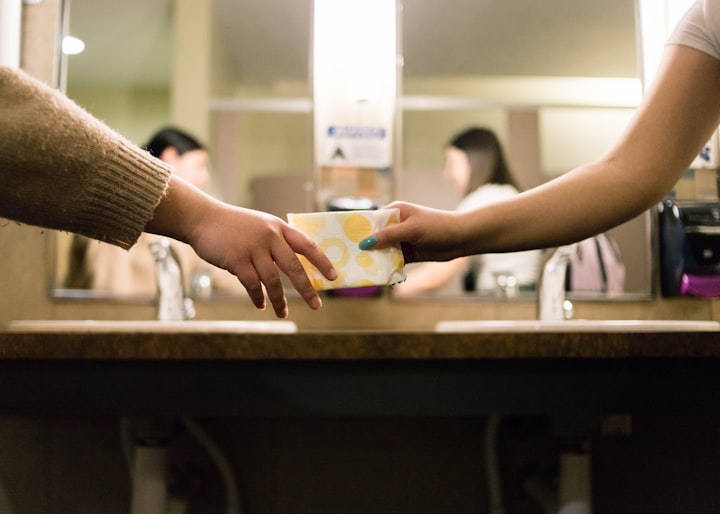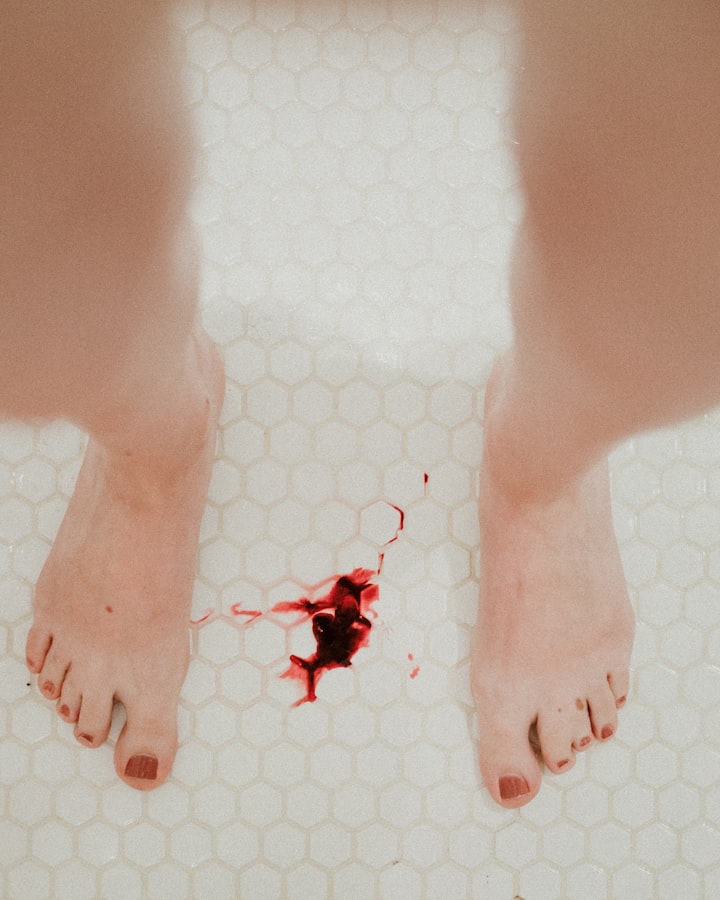How to Prepare for a First Period
A crash course in this hallmark life event

Picture this: you’re a parent, watching the marvel that your child is grow and develop into a more independent, curious and vocal being. A little adult!
At a certain point, children turn into youth – and along with the personality and mental changes come the physical ones. For those who are assigned female at birth, this means the start of periods (we call this menarche!). Periods are a normal part of puberty and adulthood, but when we’re unprepared to talk to kids about them or our knowledge is limited, they can feel intimidating and terrifying. And if kids feel uncomfortable talking about the normal processes of their body with trusted adults, there’s a high chance they definitely won’t feel safe talking about things that aren’t normal or possibly dangerous.
I was a guest on the Sweet Sometimes Sour with the ever-lovely Haly Marina to chat about period health, and in sharing our period stories so many came through about how frightening it was to find out your period had started! We all agreed that having more resources in place for both parents and youth about periods was critical to help everyone feel confident in this wacky but wonderful life transition.
So let’s break down some simple basics to prepare for the very first period – and share this with your kids to start conversations about periods early!
Start with reading positive resources about periods. There are so many wonderful pieces of media available about periods, and having exposure to content that talks about periods as normal helps to ease the transition. Fear-based media definitely doesn’t help parents or kids feel confident. My favourites to share are “Be Period Positive” by Chella Quint, “Red Moon Gang” by Tara Costello, “Vaginas and Periods” by Christian Hoeger and Kristen Lilla, and for youth who are older or have been having periods for some time, The Vagina Bible by Dr. Jen Gunter. Not only do these books normalize periods but they can help guide conversations around anatomy, hormones and what to expect from periods.
Listen to your child’s concerns about periods and puberty! You might even share a few things that worried you when you were growing up, like body odour, making friends, getting taller and more. There are no silly questions when it comes to human bodies – if kids are asking questions, they’re ready to start hearing answers, and if they don’t get them from a reliable and safe source they will definitely get them somewhere else. Remember that this is new for your child, and growing up in the only body you’ve ever known can feel really weird and lonely.
Make a starter kit (or buy one!) of period and PMS products. It can be helpful to plan ahead even before the first period begins so your child has products on hand and knows how to use them. Talk about different options available and how they are used – this is a great time to open pads and tampons and pointing out the different parts of them. Demo placing a pad on a pair of underwear and taking apart a tampon to show the different pieces. Use the diagrams on product inserts along with any other book diagrams to explain how tampons are inserted. If your child expresses interest in using a menstrual cup or disc, take some time to learn different folds. Check out different period underwear brands to test drive a few pairs. Talk with your child about how you can be the most supportive to them if they are having difficulty inserting a period product – not all children are comfortable with you being in the washroom with them.
Make some game plans for tricky scenarios or emergencies, like a leak or not having a product available. Would it be helpful to keep an extra pair of underwear in their backpack? Who are the trusted adults during their day they could ask for a period product? Does their school offer free period products? (and if not, parents, this is your time to shine and advocate for your kiddos!). Let your kids know that if there are leaks, it’s not their fault and it’s nothing to be embarrassed about – and you can show them how to clean clothes to avoid stains!
Avoid Googling period information. There’s lots of misinformation on the Internet about periods, ranging from harmless and silly to downright dangerous. While it can be tempting to do a quick search for a seemingly simple question, steer clear. Talk to a Public Health Nurse, a primary care provider or even a period and sex educator to learn more about the normal pieces of growing up and share with your kids (learning about sex does not mean that kids will start having sex, but it does mean that when they do, they have the correct information to be safe and to have fun).
While first periods can feel scary, they’re a normal part of growing up and can be empowering with the right education and support!
[I’ll be away from writing for the month of July, so stay tuned for more period power coming August 2022]
About the Creator
Emily the Period RD
I help people with periods navigate menstrual health education & wellness with a healthy serving of sass (and not an ounce of nutrition pseudoscience).






Comments
There are no comments for this story
Be the first to respond and start the conversation.